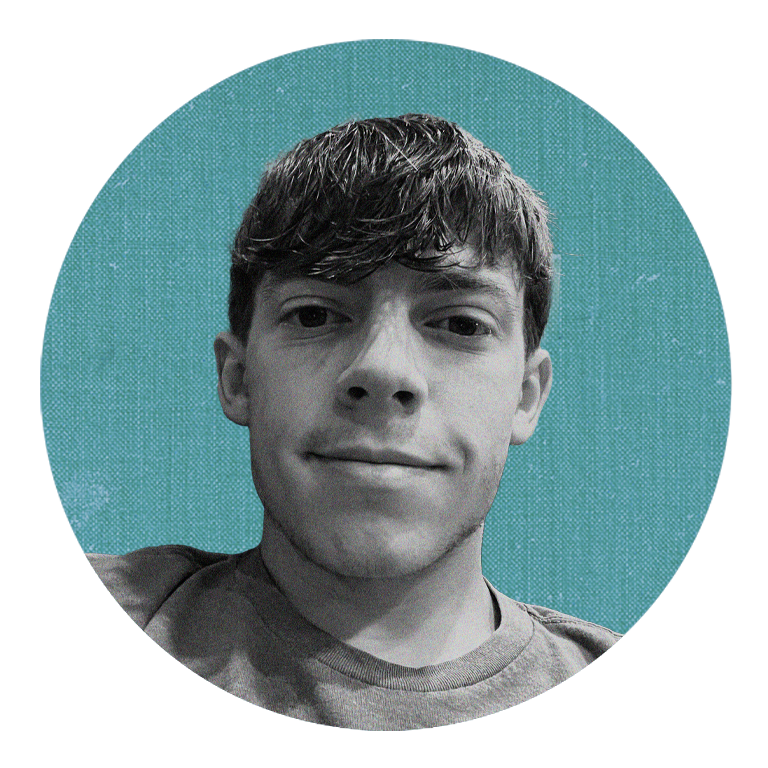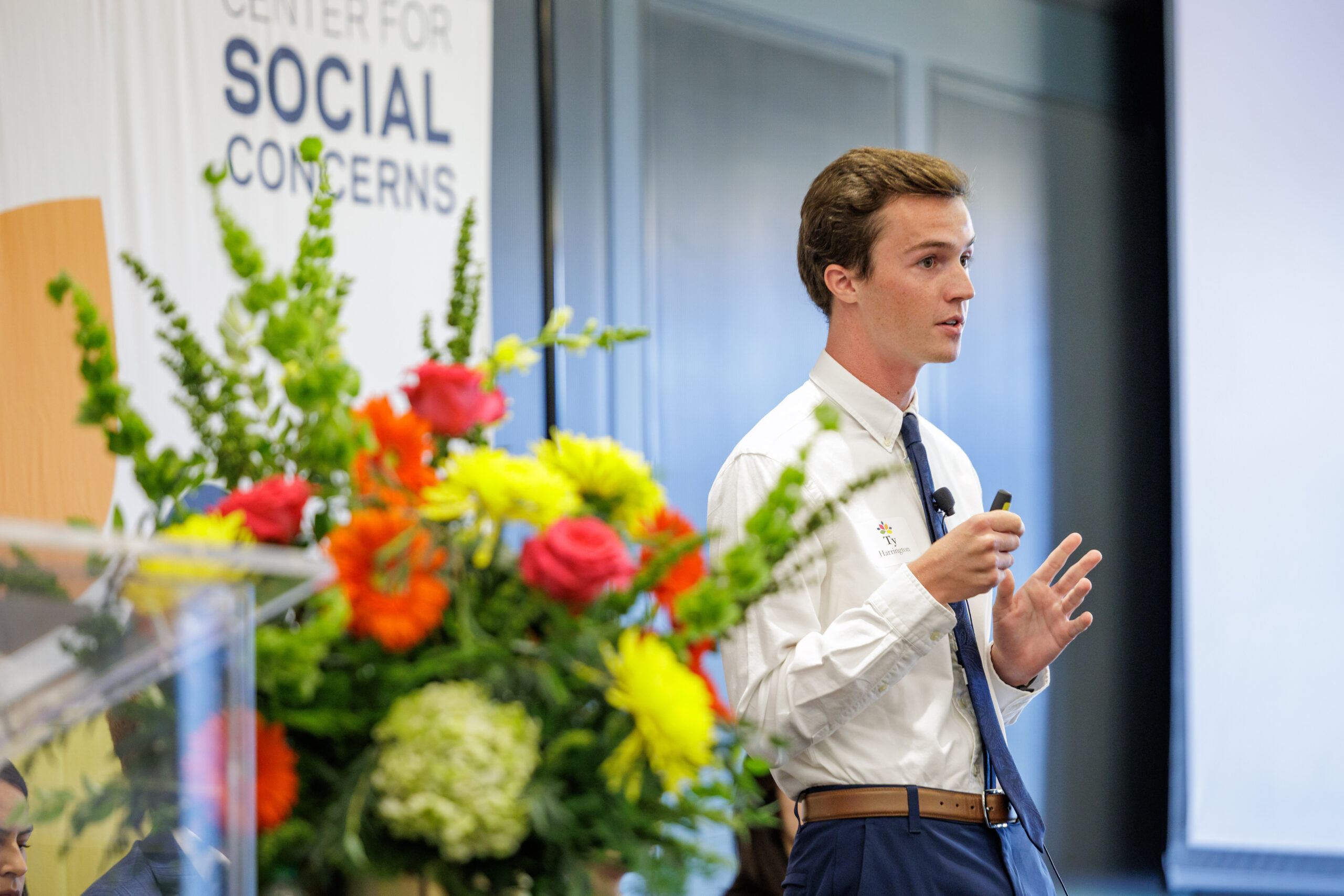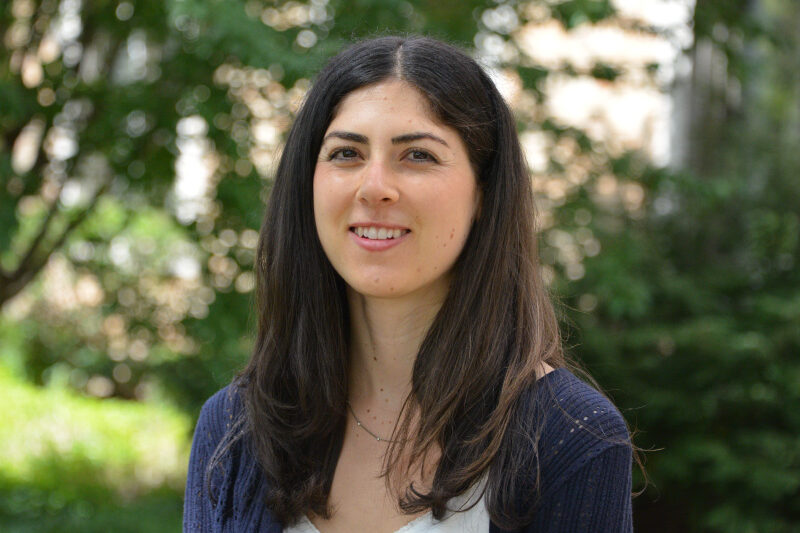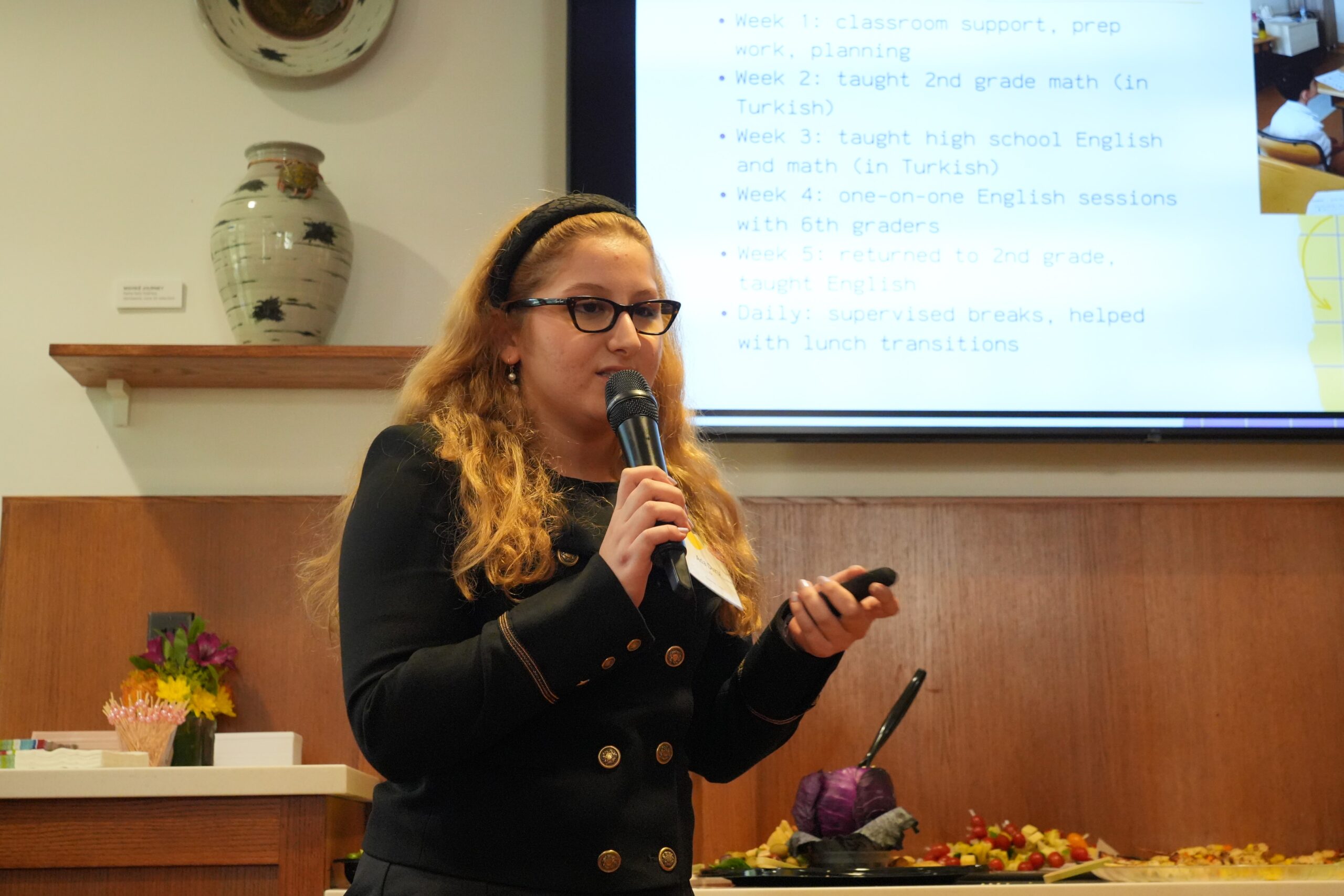ReSearching for the Common Good: Gray Nocjar
August 25, 2024
As an interdisciplinary academic institute, the Institute for Social Concerns leverages research to respond to the complex demands of justice and to serve the common good. This series, ReSearching for the Common Good, highlights some of the scholars in our community.

Gray Nocjar is an electrical engineering major with a minor in journalism, ethics and democracy from Gaithersburg, Maryland. In addition to his academic pursuits, he is the creator of the Interhall Football Bible featured in the summer 2025 issue of Notre Dame Magazine.
Gray is a 2024–25 McNeill Common Good Fellow of the Institute for Social Concerns.
How do you see your research advancing the common good?
I conducted two case studies on non-governmental organizations (NGOs) focused on renewables in rural areas, the WindAid Institute and EcoSwell. Located in Trujillo and Lobitos, Peru, respectively, they face a restrictive economic and political environment yet still provide solar and wind energy to local communities in their country.
The goal of my research is to learn how such organizations that produce clean energy for disadvantaged communities succeed in their industry, despite a host of barriers that arise. Renewable energy lags behind fossil fuels in usage, accessibility, and—in some cases within these communities—social acceptance. One’s income level, distance from major cities, and knowledge of the renewable industry can also affect one’s ability to engage with these technologies. Even greater challenges present in nations that lack clear-cut national energy policies, a robust distribution network, or reliable electric grids. Based on my findings, I am developing a playbook for any group—but particularly NGOs—to overcome barriers to producing clean energy in under-resourced areas.
How did you become interested in this research?
I always felt invested in the push for more renewable energy because I believe the most severe consequences of remaining a society reliant on fossil fuels will take shape in my lifetime. To me, it felt like a given that renewables would continue to grow and win more hearts and homes every year. Sadly, that has not been the case, as we have instead seen budget cuts and the termination of tax credits for wind turbines and other renewables. I decided to research how companies can overcome hurdles to joining or thriving in the renewable energy industry because I believe we need more hands involved in reforming the current system—and a plan to do so. As an electrical engineer, I hope to one day join a renewable energy company or NGO to find my place in this work directly.
What has it meant to be a McNeill Common Good Fellow?
The McNeill Common Good Fellowship is a one-of-a-kind chance to explore how you want to live your life, while also receiving early career resources. I can’t imagine being able to live at WindAid or EcoSwell, both thousands of miles from home, without the generous resources provided by the fellowship. McNeill gave me the chance to learn technical skills from these programs and accomplish things like improving the safety of renewable energy hybrid systems in compliance with the National Electrical Code. More importantly, the commitment of the institute to teaching me new perspectives through the fellowship’s two exclusive discussion classes provided the theoretical framework for me to understand my vocation as contributing to the common good. These courses and experiences instilled in me a desire to determine how the renewable energy crisis fits within the context of the specific communities in which I lived and with which I engaged. Ultimately, I credit the fellowship with providing me the nudge to pursue a life that benefits not only myself but also society.
Related Stories
-
Social Concerns Summer Fellow returns to India for ongoing research
-
ReSearching for the Common Good: Solbee Kang
-
Bridging worlds through art—Kyla Walker joins institute as international poetry justice fellow
-
The power of encounter—RISE Hometown prepares incoming students for learning in service of justice at Notre Dame
-
The beauty of everyday democracy—Institute convenes scholars, practitioners, Luke Bretherton for democracy conference





